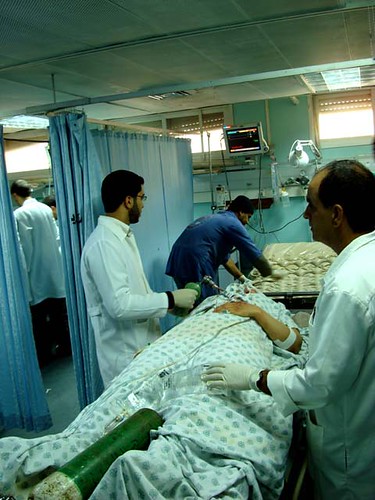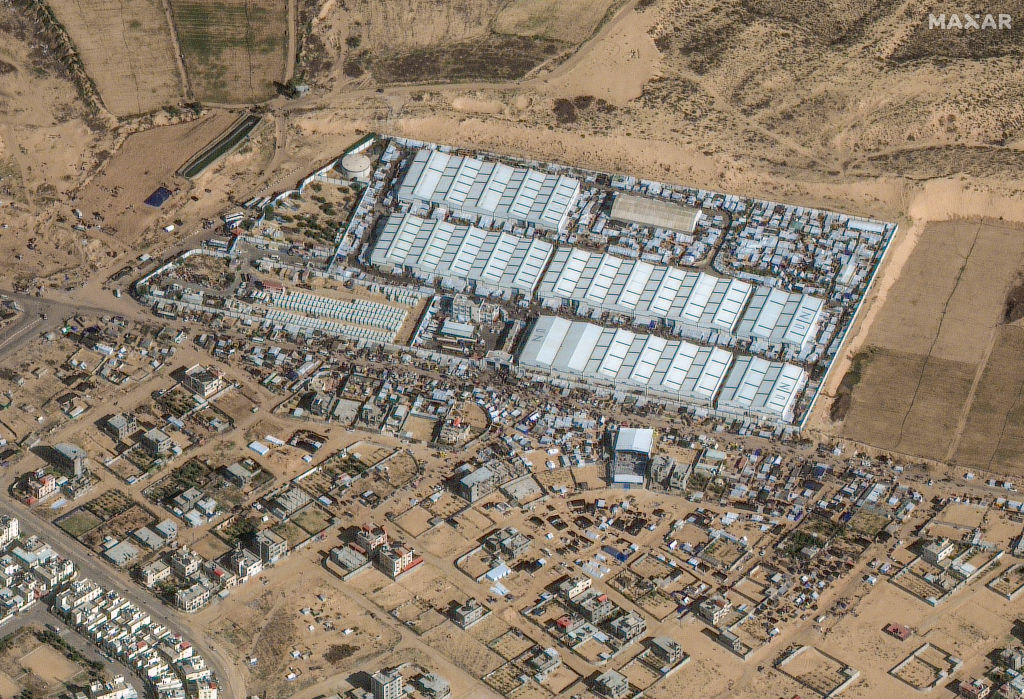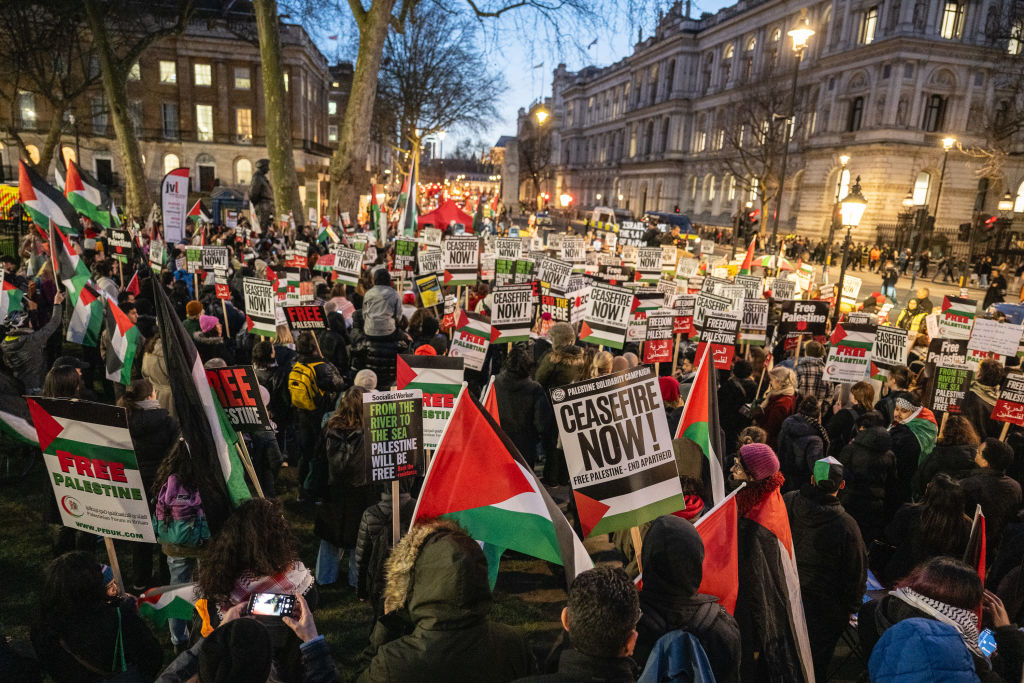What to Know About Israel’s Impending Offensive in Rafah
Rafah #Rafah

There are no safe havens in Gaza. That much has been clear since the early weeks of the war, when half of the Strip’s population was ordered to flee south amid unrelenting bombardment in preparation for an Israeli ground invasion. Hundreds of thousands of Palestinians heeded that call in the hopes that they might be spared from the deadly violence that has killed more than 28,000 people to date. As the Israeli ground offensive moved south, so did they, with many ultimately ending up in the Strip’s southernmost city of Rafah. Now, as Israel announces its intention to direct its offensive towards Rafah—which Israeli Prime Minister Benjamin Netanyahu has dubbed the “last bastion” of Hamas—more than half of the Strip’s 2.2 million population fear being caught in the crossfire.
Some already have. More than 100 Palestinains were killed in Rafah early Monday in an Israeli military raid that resulted in the rescue of two Israeli hostages. U.N. officials and humanitarian organizations alike have warned that further attacks on the city would be catastrophic for civilians sheltering there, who remain physically trapped between Egypt to the south (which refuses to open its border to Palestinians, in part out of fear of abetting their permanent displacement) Israel to the east (which is unlikely to accept taking Palestinian civilians onto its territory), and the Mediterranean Sea to the west. Gaza’s north, much of which has been destroyed, remains cordoned off by the Israeli military.
“Rafah literally can’t absorb any more,” Amir Hasanain, a 21-year-old native of the city, tells TIME. Before the war, the city had a population of roughly 280,000. Over the past four months, that number has quintupled, transforming its landscape into a sea of tents. “The situation,” he says, “is only getting worse.”
Below, what to know about Rafah and Israel’s expanding ground assault.
What are the current conditions in Rafah?
Rafah was already one of the most densely-populated cities in Gaza before Oct. 7, housing some 280,000 people within 23 square miles. Today, it is bursting at the seams as one of the sole places of refuge in the besieged enclave, now home to some 1.4 million people.
“You cannot find four square meters empty in Rafah,” says Yousef Hammash, a Gaza-based advocacy officer at the Norwegian Refugee Council.
 Maxar satellite imagery of crowds and shelters at a U.N. aid center in Rafah on Dec. 3, 2023. 2023 Maxar Technologies—Getty Images
Maxar satellite imagery of crowds and shelters at a U.N. aid center in Rafah on Dec. 3, 2023. 2023 Maxar Technologies—Getty Images
So congested is the city that its shelters have spilled out onto the streets, where tens of thousands of families have been forced to set up makeshift shelters using plastic and nylon. Disease has become rampant amid the overcrowding. Essentials such as clean water and medicine are scarce. Against this backdrop, the prospect of an Israeli military incursion on the city is “crazy even to think about,” says Hammash. “People are terrified.”
How will an Israeli offensive in Rafah impact the humanitarian situation in Gaza?
Among the biggest concerns surrounding Israel’s impending assault on Rafah is the impact it could have on the flow of humanitarian aid into the Strip, which has already seen heavy disruptions. At present, there are only two border crossings for transmitting humanitarian aid—the Rafah crossing (from Egypt) and the Kerem Shalom/Karem Abu Salem crossing (from Israel)—both of which transmit into Rafah governorate. “If hostilities were to take place in Rafah, that would seriously hamper aid operations,” says Shaina Low, a communications adviser at the East Jerusalem-based Norwegian Refugee Council.
“If they aren’t killed in the fighting, Palestinian children, women and men will be at risk of dying by starvation or disease,” Bob Kitchen, the vice president of emergencies at the International Rescue Committee, said in a statement last week. “There will no longer be a single ‘safe’ area for Palestinians to go to as their homes, markets, and health services have been annihilated.”
Will civilians be able to evacuate Rafah?
While the Israeli prime minister’s office conceded that such an incursion “requires that civilians evacuate the areas of combat,” no such evacuation plans have yet to be articulated. (The Israeli military spokesperson did not immediately respond to requests for comment.)
In order for Israel’s proposed evacuation to abide by international law, Low addes, “People evacuating need to be guaranteed safe passage, they need to have assurances of their safety once they reach where they’re being told to evacuate to, and they need to have guarantees that they will have the ability to return home once hostilities have ended and it’s safe for them to do so.”
So far, Rafah’s population has received no such assurances. “People are showing signs of confusion and fear [over] what might happen to them once they invade Rafah, where will they go,” says Hasanain, “and if this prolonged nightmare may ever come to an end.”
 Thousands of people attend a rally at Downing Street on February 12, 2024 in London, England. Stop The War Coalition and other pro-Palestinian groups are protesting Israel’s attacks on Rafah.Guy Smallman/Getty ImagesHow are global leaders reacting?
Thousands of people attend a rally at Downing Street on February 12, 2024 in London, England. Stop The War Coalition and other pro-Palestinian groups are protesting Israel’s attacks on Rafah.Guy Smallman/Getty ImagesHow are global leaders reacting?
The prospect of an Israeli incursion on Rafah has sparked widespread alarm, particularly among Israel’s close allies. U.S. National Security Spokesperson John Kirby told reporters last week that the U.S. would not support Israel’s assault on Rafah “absent any full consideration for protecting civilians,” noting that such an incursion would be “a disaster for those people.” That sentiment was echoed by U.S. Secretary of State Antony Blinken, who stressed that Israel “has the obligation to do everything possible to ensure that civilians are protected and that they get the assistance they need in the course of this conflict.”
European leaders expressed similar concerns, with the E.U.’s top diplomat Josep Borrell warning last week that an Israeli offensive would have “catastrophic consequences” for Gaza’s civilian population. (In separate comments on Monday, Borrell suggested that the U.S. and others should consider withholding arms exports to Israel amid the mounting death toll.) U.K. Foreign Secretary David Cameron urged Israel to “stop and think very seriously before it takes any further action,” reiterating the need for a sustainable ceasefire.